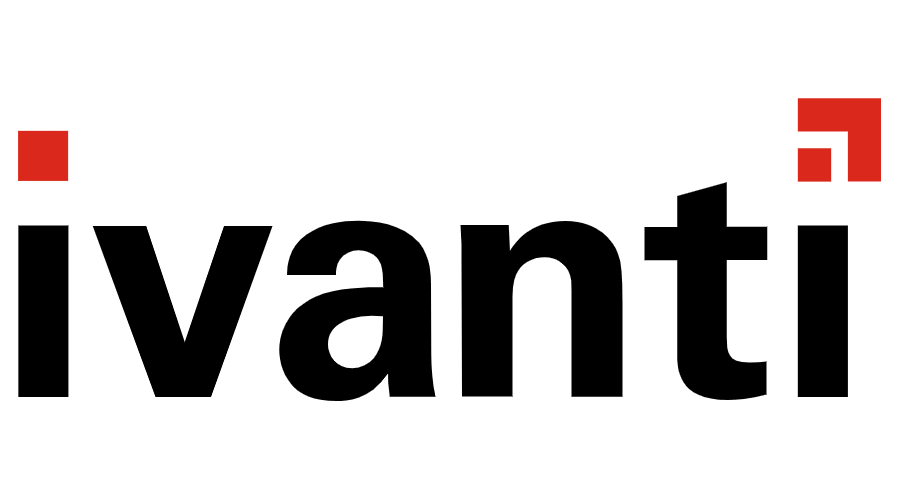Sorting
From A to Z
Deployments found: 6
About Pearland Independent School District
Pearland Independent School District (ISD) is based in Pearland, Texas. Pearland ISD serves most of the city of Pearland, the city of Brookside Village, and unincorporated areas in Brazoria County including Silverlake, a planned community. More than 25,000 Pearland ISD teachers and students access curriculum and applications via virtual desktop infrastructure (VDI).
The Challenge
Though it doesn’t get as much attention as hackers targeting the Department of Defense, large financial institutions, or the nation’s utility grid, cyber crime plagues the networks of educational institutions from coast to coast. Just Google something like “students steal personal information from school networks” and you’ll get more than 29M results.
Greg Bartay, IT director for Pearland ISD, can vouch for the seriousness of this problem firsthand. “We had a student who brought malicious tools into the district and executed them from a flash drive,” explains Bartay. “He downloaded Active Directory tools at home. He also downloaded UltraSurf, which creates a virtual tunnel through your firewall from the inside out. He was trying to break into student accounts.”
“He was posting the information he retrieved online,” Bartay continues. “We received anonymous emails from Internet share groups telling us what he was doing. With more time, he could have gotten access to things like students’ and parents’ Social Security numbers. ” To combat this threat and avoid future problems, Bartay began looking for a technology solution that the district could use to protect the personal information of students, teachers, and staff.
One week after the hack, Pearland was hit with a ransomware attack. “The attack was due to a file generated from a flash drive used on a school computer,” said Jonathan Block, desktop support services manager for Pearland ISD. “There were 15-20 file shares affected. It took us five hours to recover the data from backup. And, because we had to take down those file shares to recover data, we were unable to back up a day’s worth of teachers’ and students’ classwork.”
“We thought we were protected against ransomware,” continued Block. “But we discovered that Microsoft System Center Endpoint Protection had no zero-day definitions for the variant that attacked us.”
The one-two punch of a hack closely followed by a ransomware attack created an enormous sense of urgency for the Pearland ISD IT team to find a solution.
The Solution: Ivanti Application Manager
Other than locking down the network, which made day-to-day educational tasks nearly impossible, the district had few choices for protecting its sensitive information. “We knew that trying to address the problem via Active Directory would take a lot of time and expertise,” recalls George Thornton, vice president of engineering for Pearland’s technology partner Logical Front. “Then a representative from Ivanti explained what Application Manager could do. So we set up a proof of concept study.”
The POC ran for two months and Application Manager performed as promised, preventing any unauthorized executable from running within the network. “It did everything we were told it would do,” notes Bartay. “It gives us control over what anyone can execute out of their home folders or off a USB drive. If someone wants to run a program that’s not on our list, they have to ask permission. It’s prevented kids and even many of our staff from using Pearland ISD endpoints for non-school-related activities.”
“It took just ten minutes to deploy a simple Application Manager configuration to 38 machines in one of our high school libraries as a test,” said Block. “The team spent several hours observing a sucession of students try to play games on those library computers using flash drives they brought from home. Application Manager blocked every attempt.”
The Results
Since installing Application Manager, Bartay and his team have significantly reduced their risk. In addition, as the team observed in the school library, Application Manager has allowed the IT team to block students from executing online games without diving in to granular Active Directory policies. This saved the IT team time and also put a stop to activities that were robbing students of instructional time. “When they are losing instructional time, it means they are not doing what they are here to do,” Bartay points out.
In addition to saving time on AD policies, implementing Application Manager also saves the IT team hundreds of hours each school year resetting all the student passwords due to malware or ransomware issues.
Organizations used to stress perimeter security with strong firewalls and robust access policies. Today, that’s not enough. “You can’t put a price on security. You’re talking about people’s lives. Just ask the people that shopped at Target. People will be cleaning that up for years to come,” concludes Bartay.
“You have to have a zero trust policy, with virtual firewalls throughout your network and layered defenses. Ivanti helps achieve that.”
In addition to saving time on AD policies, implementing Application Manager also saves the IT team hundreds of hours each school year resetting all the student passwords due to malware or ransomware issues.
Organizations used to stress perimeter security with strong firewalls and robust access policies. Today, that’s not enough. “You can’t put a price on security. You’re talking about people’s lives. Just ask the people that shopped at Target. People will be cleaning that up for years to come,” concludes Bartay.
“You have to have a zero trust policy, with virtual firewalls throughout your network and layered defenses. Ivanti helps achieve that.”
Description is not ready yet
Delivering a seamless experience
RMIT University employs over 10,000 staff members who serve an excess of 50,000 students. As the University looks to grow student numbers across the board, the challenge is to deliver an excellent user experience for students and staff alike, allowing them to access university resources on or off campus.
“Tasked with supporting the university’s strategic plan, our main goals were to deliver a seamless, anytime, anywhere student computing infrastructure.” Nicholas Harvy, ICT Team Leader, Platform Services at RMIT University. “In today’s competitive environment it is even more important to ensure we maintain a consistent computing experience as the market for the student dollar intensifies. A positive IT experience could be a factor in maintaining and growing student numbers across the University.”
The IT teams aptly named MyDesktop as a service (MyDesktop), which is built on virtual desktop infrastructure, was the solution to delivering a flexible and consistent user experience that would enable students and staff to logon anywhere they had an internet connection. While MyDesktop delivered the same user experience irrespective of where the desktop was accessed, it failed to deliver on the promise of positive user experience with logon times taking up to 3-minutes, an eternity in IT time.
Compounding the slow logon times, a significant increase in storage requirements and a spike in calls to the service desk resulted in MyDesktop falling short of RMIT’s expectations.
Gone in 30 seconds
Getting logon times down was critical in achieving their goals, but RMIT also looked for a single source solution that could address several of its pain points. After careful consideration, Ivanti was selected as a best of breed solution that could be deployed across all existing platforms (different Windows OS) whilst addressing the key issues.
Ivanti Environment Manager delivered a seamless, consistent and fast, logon experience; mitigated profile corruption and reliance on group policy; and ultimately enabled desktop personalization.
According to Nicholas Harvy, ICT Team Leader, Platform Services at RMIT University, “The Ivanti solution helped us meet our goals by reducing login times to 30 seconds, helping support a consistent and seamless experience, while reducing storage needs. It also enabled our Service Desk to fix client issues via excellent tools and products.”
Since implementation, RMIT staff and students experience better login times and have reported a better experience across the board. This seamless experience also increased student mobility as the platform can be accessed both at the University and in their personal space from their chosen device.
“Mobile access to the University’s platform has definitely become something is important for the modern university,” Harvy said. “Contemporary students expect to be able to access the University’s resources and services at their own convenience.” Through Ivanti’s solution, RMIT can transition to new platforms in a more controlled manner by allowing applications to work as designed, by being deployed on the latest and best platform level.
Since deploying Environment Manager RMIT has seen a reduction in calls to their service desk and the userfriendly management interface allows the support team to provide faster and more professional help to their end users. Looking to the future MyDesktop is now delivering on its promise. “We’re very happy with our partnership with Ivanti thus far,” Harvy said. “With such promising results, we’re working with our Technical Relationship Manager to explore upgrading our environment to include patching automation and application management offerings.”
Ivanti Environment Manager delivered a seamless, consistent and fast, logon experience; mitigated profile corruption and reliance on group policy; and ultimately enabled desktop personalization.
According to Nicholas Harvy, ICT Team Leader, Platform Services at RMIT University, “The Ivanti solution helped us meet our goals by reducing login times to 30 seconds, helping support a consistent and seamless experience, while reducing storage needs. It also enabled our Service Desk to fix client issues via excellent tools and products.”
Since implementation, RMIT staff and students experience better login times and have reported a better experience across the board. This seamless experience also increased student mobility as the platform can be accessed both at the University and in their personal space from their chosen device.
“Mobile access to the University’s platform has definitely become something is important for the modern university,” Harvy said. “Contemporary students expect to be able to access the University’s resources and services at their own convenience.” Through Ivanti’s solution, RMIT can transition to new platforms in a more controlled manner by allowing applications to work as designed, by being deployed on the latest and best platform level.
Since deploying Environment Manager RMIT has seen a reduction in calls to their service desk and the userfriendly management interface allows the support team to provide faster and more professional help to their end users. Looking to the future MyDesktop is now delivering on its promise. “We’re very happy with our partnership with Ivanti thus far,” Harvy said. “With such promising results, we’re working with our Technical Relationship Manager to explore upgrading our environment to include patching automation and application management offerings.”
Description is not ready yet
Revitalizing the Help Desk
The fast-growing wine superstore was relying on a help desk solution that had gone flat. Using the aging Altiris help desk software was cumbersome. Staff could input tickets, but those requests were often missing vital information or languished in the wrong queue. Getting meaningful reporting meant Total Wine managers had to export data and manipulate it in Excel. Morale of service desk analysts was low.
As the new IT service desk manager for Total Wine, Candice Jackson’s top priority was to improve the service desk platform that supported IT, accounting, and human resource processes for 2,000 employees. Total Wine set its sights on an IT service management (ITSM) solution that would improve support efficiency and effectiveness, and provide useful metrics. Having a self-service functionality was part of the blend of requirements, so stores could be notified immediately of any IT outages, including the business-critical point-of-sale system.
Jackson worked closely with managers in Total Wine’s stores and line-of-business managers to identify the pain points, and then led vetting of solutions from Ivanti, Microsoft, ServiceNow, and EasyVista. Jackson liked Ivanti’s Hybrid IT strategy, which freed Total Wine to deploy in the cloud or on-premises. Ultimately, Total Wine selected Ivanti Service Manager for easy scalability to support the company’s rapid growth and the ability to integrate smoothly with its other business applications.
Total Wine chose to implement Ivanti Service Manager in the cloud for the easy deployment and hassle-free maintenance. “Based on our experience with upgrading our previous help desk solution, our IT team chose a hosted solution. We can depend on Ivanti to upgrade the system. We don’t need to buy another server or maintain the software,” says Jackson.
Total Wine uses Ivanti Service Manager with Incident, Problem, Change, Knowledge, and Service Request modules. Employees at headquarters or in any store can easily request a service or change, plan for appropriate remediation measures, approve and authorize the request automatically, implement the change, and audit the successful completion of the change.
Ready to Consume
“We really liked that we could use Ivanti Service Manager out of the box,” says Jackson. “We are implementing ITIL processes, and Ivanti provided a good framework to start. We didn’t need to tweak the workflow if we didn’t want to. The incident and service-request templates were ready to use immediately.”
The return was immediate. “We replaced our previous help desk system in less than 60 days,” says Jackson.
Total Wine’s retail, IT, and accounting teams use Ivanti Service Manager daily, and user reaction has been universally positive. With Ivanti’s Self-Service portal, employees can submit new requests, report incidents, and track the progress of their tickets with ease. In the first quarter of using Self-Service, the service desk staff fielded 300 fewer calls.
“Our users love the new Ivanti system,” says Jackson. “Managers love having the information they need in easy-touse dashboards and reports. Our retail employees can easily see if there is an outage with a key system, such as point-of-sale, and what they should use as a workaround.”
Morale on the service desk has improved, as staff was trained on service desk and ITIL best practices and earned certifications on key business technologies.
The addition of Ivanti Service Manager’s workflow has helped Total Wine refine its business processes for IT, human resources, and accounting. Service desk staff members are now viewed not only as experts in resolving IT issues, but also as experts in the technology needs of the business.
With the previous help desk product, creating tickets was so time-consuming and error-prone that there was a backlog of 500 open tickets. Ivanti Service Manager has eliminated that inefficiency.
The solution’s drag-and-drop workflow designer makes it easy to create and modify service workflows. Under the old system, all accounting tickets had to be routed and handled the same way, resulting in service delays. “We worked with the accounting department to create templates that would be routed to three different groups,” says Jackson. “With the Ivanti templates, we cut down on mis-assigned tickets by 90 percent.”
Automating workflow with Ivanti Service Manager in the cloud has made it easier to set up new employees, which is essential for a fast-growing retail business. In the past, managers used a paper form to request a laptop or desktop for a new hire, but the form didn’t ask whether the employee needed two monitors. “The manager would inevitably call to tell us that the new hire didn’t get what they needed,” says Jackson. “With Ivanti Service Manager, all of the questions for a new hire are part of the template.”
A Solution that Gets Better with Age
Ivanti Service Manager has become an indispensable tool for IT and the business alike. Total Wine’s IT infrastructure and business-application development teams are using the solution to make change-and-release processes more reliable. As next steps, Jackson looks forward to turning on Ivanti Voice to improve call handling and deliver an even better customer experience.
As the new IT service desk manager for Total Wine, Candice Jackson’s top priority was to improve the service desk platform that supported IT, accounting, and human resource processes for 2,000 employees. Total Wine set its sights on an IT service management (ITSM) solution that would improve support efficiency and effectiveness, and provide useful metrics. Having a self-service functionality was part of the blend of requirements, so stores could be notified immediately of any IT outages, including the business-critical point-of-sale system.
Jackson worked closely with managers in Total Wine’s stores and line-of-business managers to identify the pain points, and then led vetting of solutions from Ivanti, Microsoft, ServiceNow, and EasyVista. Jackson liked Ivanti’s Hybrid IT strategy, which freed Total Wine to deploy in the cloud or on-premises. Ultimately, Total Wine selected Ivanti Service Manager for easy scalability to support the company’s rapid growth and the ability to integrate smoothly with its other business applications.
Total Wine chose to implement Ivanti Service Manager in the cloud for the easy deployment and hassle-free maintenance. “Based on our experience with upgrading our previous help desk solution, our IT team chose a hosted solution. We can depend on Ivanti to upgrade the system. We don’t need to buy another server or maintain the software,” says Jackson.
Total Wine uses Ivanti Service Manager with Incident, Problem, Change, Knowledge, and Service Request modules. Employees at headquarters or in any store can easily request a service or change, plan for appropriate remediation measures, approve and authorize the request automatically, implement the change, and audit the successful completion of the change.
Ready to Consume
“We really liked that we could use Ivanti Service Manager out of the box,” says Jackson. “We are implementing ITIL processes, and Ivanti provided a good framework to start. We didn’t need to tweak the workflow if we didn’t want to. The incident and service-request templates were ready to use immediately.”
The return was immediate. “We replaced our previous help desk system in less than 60 days,” says Jackson.
Total Wine’s retail, IT, and accounting teams use Ivanti Service Manager daily, and user reaction has been universally positive. With Ivanti’s Self-Service portal, employees can submit new requests, report incidents, and track the progress of their tickets with ease. In the first quarter of using Self-Service, the service desk staff fielded 300 fewer calls.
“Our users love the new Ivanti system,” says Jackson. “Managers love having the information they need in easy-touse dashboards and reports. Our retail employees can easily see if there is an outage with a key system, such as point-of-sale, and what they should use as a workaround.”
Morale on the service desk has improved, as staff was trained on service desk and ITIL best practices and earned certifications on key business technologies.
The addition of Ivanti Service Manager’s workflow has helped Total Wine refine its business processes for IT, human resources, and accounting. Service desk staff members are now viewed not only as experts in resolving IT issues, but also as experts in the technology needs of the business.
With the previous help desk product, creating tickets was so time-consuming and error-prone that there was a backlog of 500 open tickets. Ivanti Service Manager has eliminated that inefficiency.
The solution’s drag-and-drop workflow designer makes it easy to create and modify service workflows. Under the old system, all accounting tickets had to be routed and handled the same way, resulting in service delays. “We worked with the accounting department to create templates that would be routed to three different groups,” says Jackson. “With the Ivanti templates, we cut down on mis-assigned tickets by 90 percent.”
Automating workflow with Ivanti Service Manager in the cloud has made it easier to set up new employees, which is essential for a fast-growing retail business. In the past, managers used a paper form to request a laptop or desktop for a new hire, but the form didn’t ask whether the employee needed two monitors. “The manager would inevitably call to tell us that the new hire didn’t get what they needed,” says Jackson. “With Ivanti Service Manager, all of the questions for a new hire are part of the template.”
A Solution that Gets Better with Age
Ivanti Service Manager has become an indispensable tool for IT and the business alike. Total Wine’s IT infrastructure and business-application development teams are using the solution to make change-and-release processes more reliable. As next steps, Jackson looks forward to turning on Ivanti Voice to improve call handling and deliver an even better customer experience.
Making Ivanti the Linchpin of Its Virtual Desktop Infrastructure
Bolton NHS Foundation Trust, a UK-based integrated care organization, offers patient care in the community at more than 20 health centers and clinics, including the Royal Bolton Hospital. With a staff of over 4,000 and more than 600 beds, The Trust accommodates more than 100,000 Accident and Emergency attendances and 750,000 community attendances a year.
From an IT perspective, The Trust exceeds the complexity of many business environments. It supports nearly 300 clinical applications, all of which involve potential risk in terms of patient care. That means zero tolerance for data loss or application downtime. Moreover, 40-plus community sites as well as 4,000 users at the hospital depend on The Trust's IT infrastructure. "The community sites needed a lot of help," notes Bolton NHS Foundation Trust CIO, Rachel Dunscombe. "Their virtualized desktops were more than a decade old. And we also inherited a lot of old desktop equipment. Our first order of business was to bring them into the modern world, primarily VDI and Windows 7, so that clinicians could have a consistent experience no matter where they accessed patient information."
"But there was no way we could do a Big Bang roll out of Windows 7. The disruption would have potentially impacted patient care," continues Brett Walmsley, Bolton NHS Foundation Trust's CTO. "So, we needed something that would allow users to move between desktops as easily as possible while we gradually went through the migration from XP to Windows 7."
Ivanti – The Only Solution for the Job
Initially, The Trust chose Ivanti only for its value in simplifying and streamlining the migration to Windows 7. "Because we'd been working with Ivanti User Workspace Manager to manage user profiles, we didn't have to research the market and do a proof of concept," explains Dunscombe. "We could prove that it could do the job."
Nevertheless, The Trust's IT team soon realized that Ivanti had much more to offer. "It did more than we expected," observes Walmsley. "In fact, we changed our five- and 10-year plans based on the functionality it could offer in supporting our deployment of the virtual desktop."
The Trust's new roadmap calls for a fully mobile, virtual desktop where every aspect of the environment will be streamed, with Ivanti binding all the elements together. "We want to have full desktop virtualization using Citrix XenDesktop 7.6 to do the desktop brokering and Microsoft App-V for application delivery," says Walmsley.
Adding Value to Microsoft App-V
The Trust uses Microsoft App-V to make applications available to users without installing them directly on users’ PCs. But not all applications virtualize equally well. For example, The Trust's digital dictation application streams data and settings through a virtual desktop to virtual storage. "We've had trouble with the desktop application," Walmsley comments, "never mind putting it in a virtual environment. The way it stores voice and data must be fast and reliable. It can't be missing parts." With Ivanti, The Trust successfully virtualized the application, while improving logon speed and increasing functionality.
Likewise, Ivanti helped successfully virtualize the mobile pharmacy application. "With Ivanti, you can recognize different virtual desktop sessions and access points," adds Walmsley. "It recognizes a disconnected session.
So when a clinician changes location, Ivanti can safely redirect the session settings, correctly remap printers, and eliminate any potential clinical issues."
Simplifying Patch Management
Before Ivanti, every Microsoft "patch Tuesday" brought days of frustration. Thirty percent of patches would fail on average, often requiring complete machine rebuilds.
"We had two-and-a half to three thousand desktops spread over 40 sites, with different versions of everything," Walmsley recalls. "Plus a legacy virtualized server farm," Dunscombe adds. Now that The Trust has moved to highly standardized virtual desktops and applications, patching is fast and problem-free. Users still enjoy a personalized desktop experience, but IT inefficiencies were eliminated and the window of exposure to unpatched security vulnerabilities was greatly reduced.
Although one non-persistent desktop is the ideal, Walmsley realizes that there may be exceptions. "The idea is not to have one monolithic desktop, which leads to complexity," he muses. "But, if something can't be virtualized, it will have to go on the desktop where Ivanti can control access and configuration settings."
Right now, only two or three out of 40 applications fit in that category. "Everything else gets streamed in," Walmsley says. “Virtualization reduces the impact of the updates. Now they're nearly instantaneous.”
Avoiding the “Nightmare”
The Trust's use of Ivanti went far beyond its Windows 7 migration; Ivanti made that initiative much more manageable and cost effective. "We couldn't have done it without Ivanti. End of story!" emphasizes Walmsley.
Notes Rachel Dunscombe, "To do it as a Big Bang would have required at least 30 percent more in terms of staff. Plus, it would have been too risky and too costly with potential impacts on patient safety and clinical staff productivity, which was a non-starter for us."
From impairing the mobility and productivity of clinicians to isolating machines between clinics and health centers depending on the stage of the migration, it would have been as Walmsley sums up, "a nightmare."
Across the board, the deployment of Ivanti has been a success. "It’s allowed us to deliver a much more personalized experience to each user, while simplifying policy and application management," concludes
Dunscombe. "Clinicians get the information they need faster, which reduces clinical risk. It helps us deliver better, faster support. We love it. And we know there's much more we can do with Ivanti."
From an IT perspective, The Trust exceeds the complexity of many business environments. It supports nearly 300 clinical applications, all of which involve potential risk in terms of patient care. That means zero tolerance for data loss or application downtime. Moreover, 40-plus community sites as well as 4,000 users at the hospital depend on The Trust's IT infrastructure. "The community sites needed a lot of help," notes Bolton NHS Foundation Trust CIO, Rachel Dunscombe. "Their virtualized desktops were more than a decade old. And we also inherited a lot of old desktop equipment. Our first order of business was to bring them into the modern world, primarily VDI and Windows 7, so that clinicians could have a consistent experience no matter where they accessed patient information."
"But there was no way we could do a Big Bang roll out of Windows 7. The disruption would have potentially impacted patient care," continues Brett Walmsley, Bolton NHS Foundation Trust's CTO. "So, we needed something that would allow users to move between desktops as easily as possible while we gradually went through the migration from XP to Windows 7."
Ivanti – The Only Solution for the Job
Initially, The Trust chose Ivanti only for its value in simplifying and streamlining the migration to Windows 7. "Because we'd been working with Ivanti User Workspace Manager to manage user profiles, we didn't have to research the market and do a proof of concept," explains Dunscombe. "We could prove that it could do the job."
Nevertheless, The Trust's IT team soon realized that Ivanti had much more to offer. "It did more than we expected," observes Walmsley. "In fact, we changed our five- and 10-year plans based on the functionality it could offer in supporting our deployment of the virtual desktop."
The Trust's new roadmap calls for a fully mobile, virtual desktop where every aspect of the environment will be streamed, with Ivanti binding all the elements together. "We want to have full desktop virtualization using Citrix XenDesktop 7.6 to do the desktop brokering and Microsoft App-V for application delivery," says Walmsley.
Adding Value to Microsoft App-V
The Trust uses Microsoft App-V to make applications available to users without installing them directly on users’ PCs. But not all applications virtualize equally well. For example, The Trust's digital dictation application streams data and settings through a virtual desktop to virtual storage. "We've had trouble with the desktop application," Walmsley comments, "never mind putting it in a virtual environment. The way it stores voice and data must be fast and reliable. It can't be missing parts." With Ivanti, The Trust successfully virtualized the application, while improving logon speed and increasing functionality.
Likewise, Ivanti helped successfully virtualize the mobile pharmacy application. "With Ivanti, you can recognize different virtual desktop sessions and access points," adds Walmsley. "It recognizes a disconnected session.
So when a clinician changes location, Ivanti can safely redirect the session settings, correctly remap printers, and eliminate any potential clinical issues."
Simplifying Patch Management
Before Ivanti, every Microsoft "patch Tuesday" brought days of frustration. Thirty percent of patches would fail on average, often requiring complete machine rebuilds.
"We had two-and-a half to three thousand desktops spread over 40 sites, with different versions of everything," Walmsley recalls. "Plus a legacy virtualized server farm," Dunscombe adds. Now that The Trust has moved to highly standardized virtual desktops and applications, patching is fast and problem-free. Users still enjoy a personalized desktop experience, but IT inefficiencies were eliminated and the window of exposure to unpatched security vulnerabilities was greatly reduced.
Although one non-persistent desktop is the ideal, Walmsley realizes that there may be exceptions. "The idea is not to have one monolithic desktop, which leads to complexity," he muses. "But, if something can't be virtualized, it will have to go on the desktop where Ivanti can control access and configuration settings."
Right now, only two or three out of 40 applications fit in that category. "Everything else gets streamed in," Walmsley says. “Virtualization reduces the impact of the updates. Now they're nearly instantaneous.”
Avoiding the “Nightmare”
The Trust's use of Ivanti went far beyond its Windows 7 migration; Ivanti made that initiative much more manageable and cost effective. "We couldn't have done it without Ivanti. End of story!" emphasizes Walmsley.
Notes Rachel Dunscombe, "To do it as a Big Bang would have required at least 30 percent more in terms of staff. Plus, it would have been too risky and too costly with potential impacts on patient safety and clinical staff productivity, which was a non-starter for us."
From impairing the mobility and productivity of clinicians to isolating machines between clinics and health centers depending on the stage of the migration, it would have been as Walmsley sums up, "a nightmare."
Across the board, the deployment of Ivanti has been a success. "It’s allowed us to deliver a much more personalized experience to each user, while simplifying policy and application management," concludes
Dunscombe. "Clinicians get the information they need faster, which reduces clinical risk. It helps us deliver better, faster support. We love it. And we know there's much more we can do with Ivanti."





